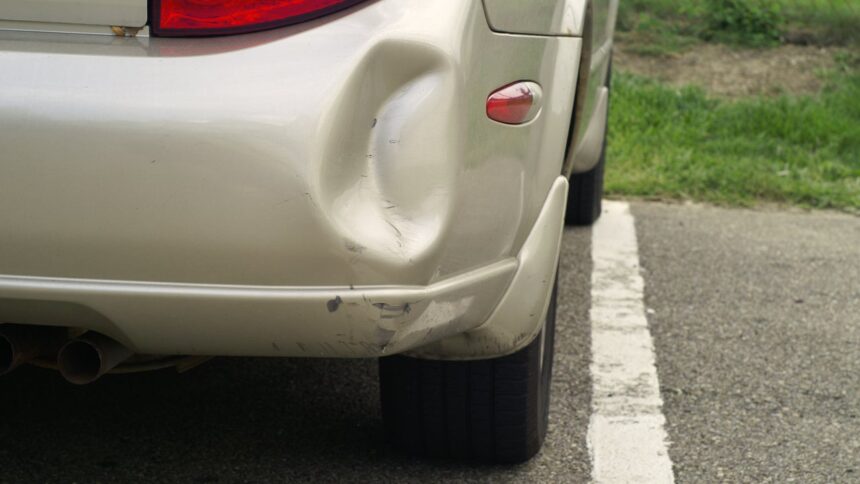As a driver, having reliable car insurance can provide you with peace of mind and financial protection if you get involved in an accident. However, there are certain circumstances in which filing an insurance claim makes no sense.
For example, let’s say you enter a fender bender. This is a minor accident that can cause no one to hurt and cause cosmetic damage to the bumper. In these cases, it can be difficult to determine whether you need to ask your insurance company to pay the damage and face an increase in potential premiums. Here are some things to consider before filing a bumper damage insurance claim:
Should I file a claim for bumper damage?
After a fender vendor, you may wonder if it is worth filing a car insurance claim to cover some of the repair costs. However, before filing a claim for bumper damage (or other events affecting the vehicle), you should consider the potential consequences.
First of all, your claim can raise the price of your car insurance premiums for the next few years. Additionally, if your car needs repairs, you will need to pay the deduction from your pocket. To determine whether filing a claim is the right choice for you, consider the following questions:
1. Was another driver involved?
If another driver is involved in a fender vendor, things get a little more complicated than if you were the only driver. In such cases, both drivers may agree to handle the situation without insured. However, if multiple drivers are involved in an accident, filing a claim is usually the best option.
2. Has anyone been injured?
No matter who is responsible, you should notify the insurance company as soon as possible if you, your passenger, or another driver are injured in an accident. If you don’t tell your insurance company, you could face consequences, such as a later injury lawsuit.
3. What is the cost of loss compared to the deductible?
If you are the only driver involved and the cost to correct the damage is higher than deductible, it makes sense to file a claim. However, if you file a claim and the repair costs are less than the deductible, you will not get a payment, but renewing your insurance policy could increase your premium.
Does car insurance cover damage to your bumper?
Can I repair my car bumper with insurance? In some cases, yes – but it depends on the type of car insurance you have. If you have, you will usually be covered:
- Collision coverage: After an accident, this type of coverage will help you pay for repairs and replacements from damage to your vehicle.
- Comprehensive coverage: Collision compensation applies when hit by another person’s car or stationary object, but comprehensive coverage occurs if the vehicle is otherwise damaged, such as destruction, weather-related damage, or crashing an animal.
- Uninsured driver property damage: This type of coverage is available (and is required) in some states. If another driver hits you and you don’t have insurance, it will help you cover the cost of repairs.
If another driver is an accident failure and they have liability insurance, it should cover the damage to your car.
When should you consider filing a fender vendor claim?
You should consider filing a car insurance claim for bumper damage in certain scenarios, including:
- You must pay another driver the liability compensation: If you are on the hook due to damage to another driver’s vehicle or medical expenses, you must file a claim and notify the insurance company.
- You cannot afford to pay for repairs: It is also worth billing if repair costs are deductible and there is no financial means to cover yourself.
- You weren’t negligent: If another driver causes damage to the bumper, you will need to involve the insurance company and obtain liability coverage from the other driver.
When to consider not filing a fender vendor claim
It is not necessarily logical to file an insurance claim to pay for minor bumper damages. You may consider skipping a claim if:
- Only damage to your car: If it causes damage and no other drivers are involved, you can choose to pay for the repair from your pocket, especially if there is no collision coverage.
- You recently filed a claim: Filed multiple claims in a few years can lead to a significant increase in premium rates. Additionally, it could be placed in the high-risk driver category. However, this is not the case if you are a disability and cause damage to another person’s vehicle. In that case, you will need to file a request.
- You were a disability: Again, if the damage to the bumper is due to your own fault (and no one else was involved), it may be best to pay for the repair yourself. Filening a claim in this type of situation can be a red flag for your insurance company.










